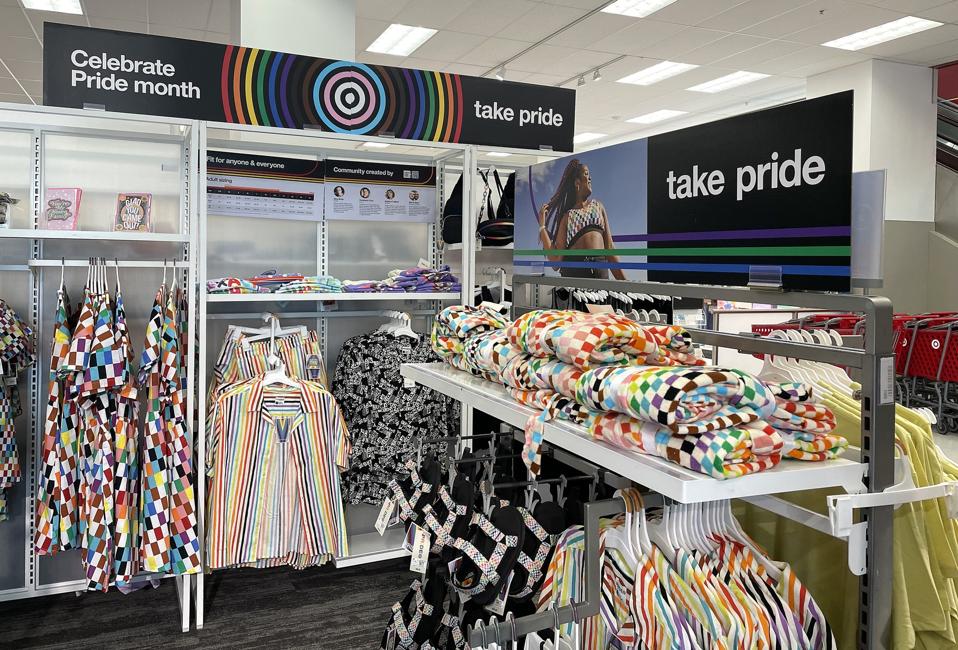June is Pride month, which has long been a time when brands show their support for the LGBTQ+ community through campaigns, limited-edition products and charitable initiatives. But in 2025, marketing around Pride has been noticeably quiet. As political pressure and public backlash reshape how companies approach social issues, many are reevaluating their involvement—or stepping back entirely—with last effects for corporations and queer individuals alike.
Pride’s Roots Are In Protest
To understand today’s Pride, it’s worth returning to the celebration’s origins. The modern LGBTQ+ rights movement was ignited by resistance. In June 1969, following yet another police raid at the Stonewall Inn—a well-known gay bar in New York’s Greenwich Village—a series of spontaneous, and at times violent, protests erupted. Led in large part by trans women of color like Marsha P. Johnson and Sylvia Rivera, these demonstrations catalyzed a movement. The following year, cities like New York, Chicago and Los Angeles held their first “Gay Liberation” marches, commemorating what would become known as the Stonewall Uprising.
What started as protest evolved over decades into celebration—but never divorced itself from politics. In the 1980s and 1990s, Pride events became vital spaces of mourning and activism amid the AIDS epidemic. In the 2000s, they became linked to the push for marriage equality. And as for today, Pride has become a lightning rod for cable news talking heads to discuss and dissect the interplay of the personal and political, showing us that, in some ways, very little has changed in the last five decades.
A Business Case For Pride
Visibility–like that found during Pride Month–has an undoubtably positive impact on the broader social conversation surrounding the LGBTQ+ community. At the macro level, visibility helps to normalize lifestyle differences within broader demographics. On a personal level, there is mounting research that representation can play a significant impact on LGBTQ+ youth’s mental health and self-worth.
While this is all positive for the queer community, businesses have historically seen Pride as a business opportunity, seeing an untapped market potential that’s often left out of marketing strategy discussions. According to LGBT Capital, global LGBTQ+ spending power is estimated at over $4.7 trillion annually, with the U.S. accounting for approximately $1.4 trillion. Couple this with Gallup’s most recent data from 2024, which estimates that more than 7.6% of U.S. adults identify as LGBTQ+, and one can see why companies have been happy to create capsule collections and marketing campaigns around Pride Month. Apple and Levi’s have long built Pride collections with a donation arm to their revenue. Converse has partnered with queer artists over the years on limited releases. And even outdoor brand North Face has worked with drag performer and environmentalist Pattie Gonia on an online video series.
The Rainbow Backlash
As Pride became part of mainstream commerce, it also became a flashpoint for criticism. Perhaps surprising to some, Pride’s commercial success has not always been seen as a positive within the gay community. LGBTQ+ activists and consumers began to call out what they dubbed “rainbow capitalism”: companies that drape themselves in the rainbow flag for one month a year without making meaningful, year-round commitments. The critique? That commodification of queer identity diluted its political power and played into tropes instead of brands using their economic and political influence to work on legislation that could benefit LGBTQ+ lives.
In recent years, conservative backlash has begun to intensify, led in part by prominent cable news hosts and political punditry. Pride campaigns were increasingly met with accusations of “wokeness” and “grooming,” with right-wing media, using harmful stereotypes about the queer community as a basis for their criticism. One such incident, Bud Light’s partnership with transgender celebrity Dylan Mulvaney, is often cited as when online outrage bled into the bottom line for a brand. Bud Light’s brief partnership with trans influencer Mulvaney led to widespread backlash—including boycotts, viral misinformation, and declining sales. According to Forbes, the brand lost $1.4 billion in sales following this controversy.
Pride 2025: A Political Chill
What makes 2025 different isn’t just cultural fatigue or market uncertainty. It’s political. Since returning to office for his second term, President Donald Trump has ushered in an administration that is explicitly hostile to DEI (diversity, equity, inclusion) initiatives, viewing them as ideological overreach, causing a national chilling effect in schools, in government agencies and among businesses.
According to a recent CNN report, some corporations have been quietly warned: engaging in LGBTQ+ advocacy could result in increased regulatory scrutiny, cancelled contracts, or even targeted audits. The Equal Employment Opportunity Commission (EEOC) has rolled back guidelines that protect against LGBTQ+ workplace discrimination, while agencies like the Department of Education have removed mentions of gender identity from anti-bullying policies. All of this has affected how companies are handling Pride this month, causing a deafening halt compared to previous years.
This chilling effect across companies doesn’t simply affect the bottom line; it’s ripple effects put vulnerable communities at further risk. The Trump administration’s bullseye on anything deemed to be “DEI” has meant federal funding being pulled from programs that support LGBTQ+ youth mental health and suicide prevention—programs that had previously offered life-saving resources. Without those safety nets, the burden shifts heavily to nonprofits and grassroots efforts. And so, without the corporate donations typically fueled by Pride partnerships, even that private sector support is drying up.
Where To Spend, Who To Support
From its humble beginnings to becoming a worldwide celebration, Pride has always been political. Because of this, the placement of Pride within the wider conversation around LGBTQ+ issues has continually shifted over the years. While many corporations have put Pride on the backburner this June due to political and social pressures, other companies are sticking strong to their commitment to the queer community. For a comprehensive list of brands still moving forward with their Pride iniatives, such as Abercrombie & Fitch, Calvin Klein and Levi’s, visit Pink News.

